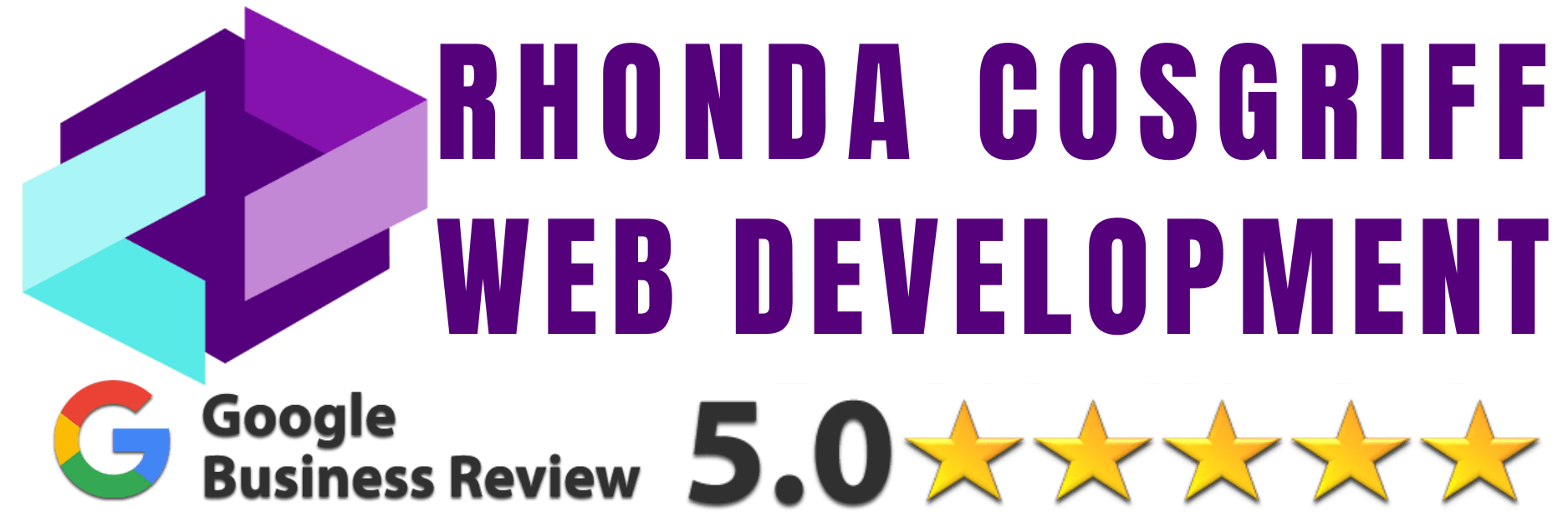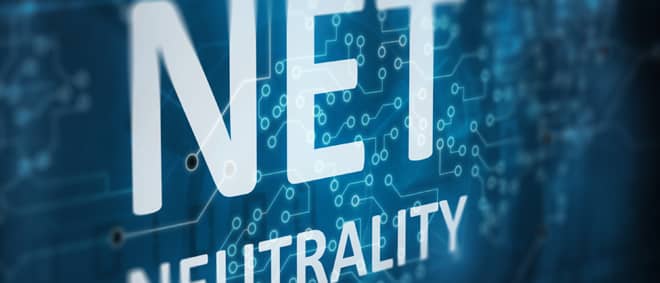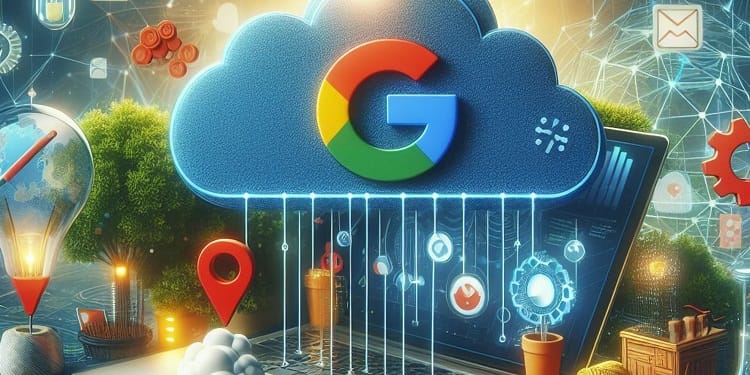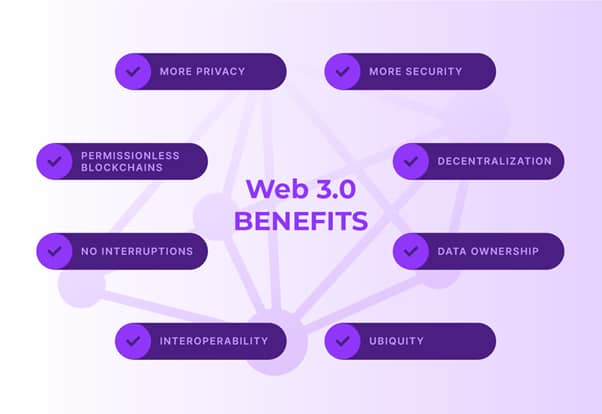 10 Ways Web3 claims to be Better Than Web2
10 Ways Web3 claims to be Better Than Web2
According to the classic definitions of web3, the concept of ‘semantic web3’ provides an almost realistic explanation for how web3 would work. Semantic web basically implies that all the data on the web would be machine-readable. The semantic metadata of a webpage provides a detailed meaning of different elements of the webpage to computers. The internet works as a massive and connected database on the basis of semantic metadata. Search queries rely on capabilities of machines for reading the semantic metadata to facilitate contextually appropriate search results with better accuracy.
The new phase of the internet will increase customer transparency and user orientation. The way companies use the data of their customers will change completely. Blockchain technology will be at the core of Web 3.0. Therefore all web and mobile applications will require a blockchain upgrade.
1. No third party. Blockchain technology is completely decentralized. The term “decentralized” is concerned with who controls the network — it means that no single entity owns or controls the network. It will be open source applications- Open source software (OSS) is software that is distributed with its source code, making it available for use, modification, and distribution with its original rights. Some of the most used applications today are open source like, Wikipedia, Firefox web browser, and WordPress. It is the best way to evolve the software for the cleanest most efficient code, it will push updates as bugs are found and fixed so that the best version is available to everyone that can update the application. The current Web 2.0 and previous Web 1.0 versions of the internet were controlled by centralized web servers owned by companies, corporations and governments.
However, in Web 3.0, there won’t be any third-party service providers. For example, digital coins such as cryptocurrencies don’t require banks or financial institutions to operate. Transactions are between the two transacting parties. With no intermediaries, businesses will reduce their operating costs and be more competitive in their industries. You will use open source applications for these different cryptocurrencies, things like a crypto wallet where you will store, trade and exchange these various cryptocurrencies. You can link your traditional funding source like your bank then exchange your dollars to whatever cryptocurrencies that wallet has access to.
2. Easier Regulation Compliance. With blockchain, transactions will be visible and easily traceable. This will enable companies to comply with government regulations through transparency. I just hope people keep big government in check because they could easily use this transparency to exploit their grip and exercise even more control.
3. Increased Accountability. Transactions and actions will be tracked, and as a result, all companies will be held accountable for all activities. This will enable consumers to purchase from reputable companies. This could also lead to government overeach so we must proceed with caution to make sure they do not seize too much power in cryptocurrency using their usual guise which is when something happens they step up to say “see you need our protection and oversight to keep that sort of thing from happening again” but really they use that new power to just collect data on the people to use how they see fit.
4. Better Security. Atleast we hope better security. The technology makes it impossible for hackers and unauthorized parties to access data. Since blockchain networks are decentralized, there can be no points of failure or data theft. Read my previous blog on the 5 Risks of Web3.
The importance of web3 could shed further light on the necessity for identifying web3 security risks and their impact. In the case of web2, search engines would offer results on the basis of keywords in web content. As a result, there is no way web2 search engines would consider contextual understanding. On the contrary, web3 can help in better information analytics and transactions through a deeper contextual understanding of all pages.
Apart from the “semantic web” traits, web3 also emphasizes it distributed networking or decentralization to resolve pressing concerns with web2. Decentralization helps in preventing the unwarranted influence of big tech companies such as Google, Facebook and Twitter on access to internet services. Users have the freedom to interact with sites and apps without any permission and no risk of being banned by the owners of the centralized serve if by chance you had an opposing viewpoint to their organizations. At the same time, web3 also allows complete control over its own encrypted data to users without any centralized intermediaries.
5. Better Customer Relations. Information shared across Web 3.0 will be unchangeable once done. Therefore, customers can breathe easily and know the information is authentic. This will enable businesses to build long-lasting relationships with their customers.
The tamper-proof record of transactions will enable customers to see companies for what they are. Also, the real-time view of supply chains will allow customers to tell exactly where their orders are within the production stage.
7. Affordability. Blockchain technology’s distributed nature will ensure that Web3.0 is cheaper and safer for businesses. Since data isn’t stored in one server, it’s less vulnerable to loss or cyber-attacks. Also, apps won’t require expensive data servers. They will run on networks of computers of end users.
Web 3.0 will create equal opportunities for small business owners. The big companies who currently own private data centers can easily manipulate the internet to their advantage. Biggest advantage being the profit, influence and persuasion. We have seen a recent increase in the wiping of the web by these large corporations that control the centralized web 2.0 which is an equivalent to a modern day burning of the books if you ask me. With blockchain technology, big corporations will lose the power to influence the internet—this will level the playing field we hope so these large search result companies are not controlling what’s on the web.
The decentralization aspect of Web 3.0 will reduce internet downtime, which saves businesses high costs. Currently, server failures cause downtimes. The new phase of the internet, web 3.0 is still in the development stage. There are a few companies that are already using the technology. Keep a close eye on technological changes to capitalize on the opportunities it presents to your business. We will be posting more about that soon. Subscribe or message us today to talk about Web3 more.










